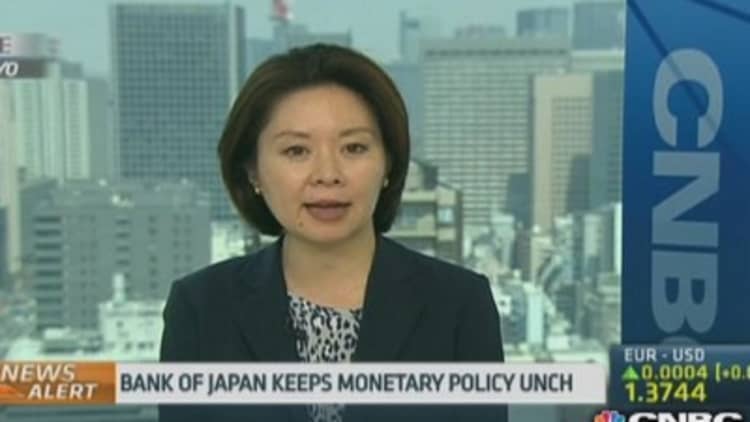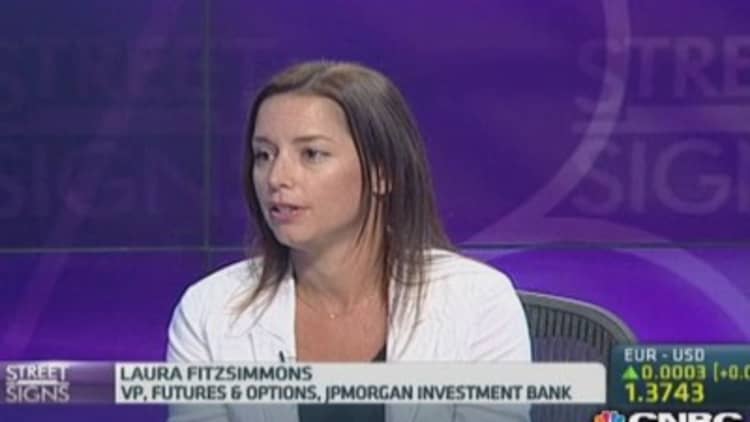
The Bank of Japan (BOJ) held off on expanding monetary stimulus on Tuesday, even as a sales tax hike clouds the outlook for the world's third-largest economy.
As expected, the BOJ voted unanimously at the end of its two-day meeting to maintain its pledge of increasing base money, its key policy gauge, at an annual pace of 60 trillion to 70 trillion yen ($589-$687 billion).
The central bank said business sentiment continues to improve but some companies are cautious about the outlook.
The country's consumption tax was hiked to 8 percent from 5 percent this month, a move many market watchers expect will slow economic growth and trigger a response from the BOJ.
The last time Japan lifted the sales tax in 1997 to 5 percent from 3 percent, the economy slipped into recession shortly afterwards.
In a news conference held after the decision, BOJ governor Harihiko Kuroda said while Japan's economy could slump in the second quarter on the onset of the tax hike, he expects a rebound from the third quarter on improvements in jobs and income conditions.
He also expects consumer inflation to reach BOJ's 2 percent around the end of fiscal 2014 through to early fiscal 2015.
Read MoreNo better time to hike sales tax: Mr Yen
Analysts say Kuroda upbeat view of the economy suggest further easing may happen later, rather than sooner.
"Earlier, we had expected the consumption tax hike may have brought in further easing from the BOJ but we changed that call when we looked at the tone of Kuroda's recent speech where he seemed quite happy with how things were tracking and certainly not too fearsome of what was coming form the tax hike," said Laura Fitzsimmons of JPMorgan, adding that she still expects easing down the line.

"We have doubled our expectations [of further asset purchases in terms of JGBs]. What we're looking for before is 10 trillion extra on top of 50 to 70 trillion already being bought on an annual basis. We think an extra 20 could happen," Fitzsimmons added.
Read MoreHave investors been too harsh on Japan?
The consumption tax hike is seen as key to reducing Japan's hefty debt pile, which is more than twice the size of its economy.
Japanese markets were little changed following the decision, with the benchmark Nikkei finishing 1.36 percent lower, while held steady at 102.8, its weakest level since March 28.
Analysts say market movements will hinge on upcoming Japanese data, especially retail sales figures for the month of April, will be closely watched for clues on the impact of the sales tax hike.
"I would expect that [data] to be extremely weak and the Nikkei will suffer on the back of that. Dollar-yen will fall and that will be a good entry point for anyone who wants to go long in anticipation of BOJ reaction some point in July," Gareth Berry, currency strategist at UBS told CNBC.

